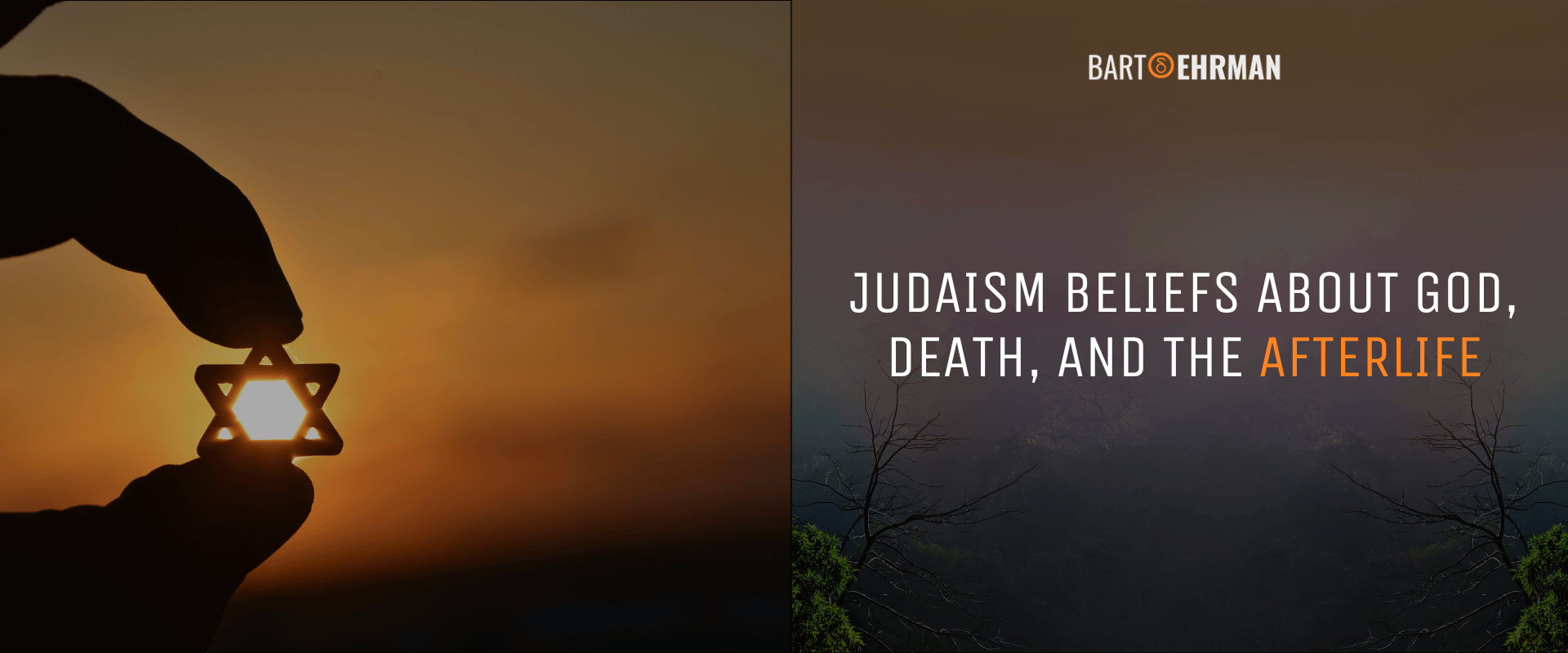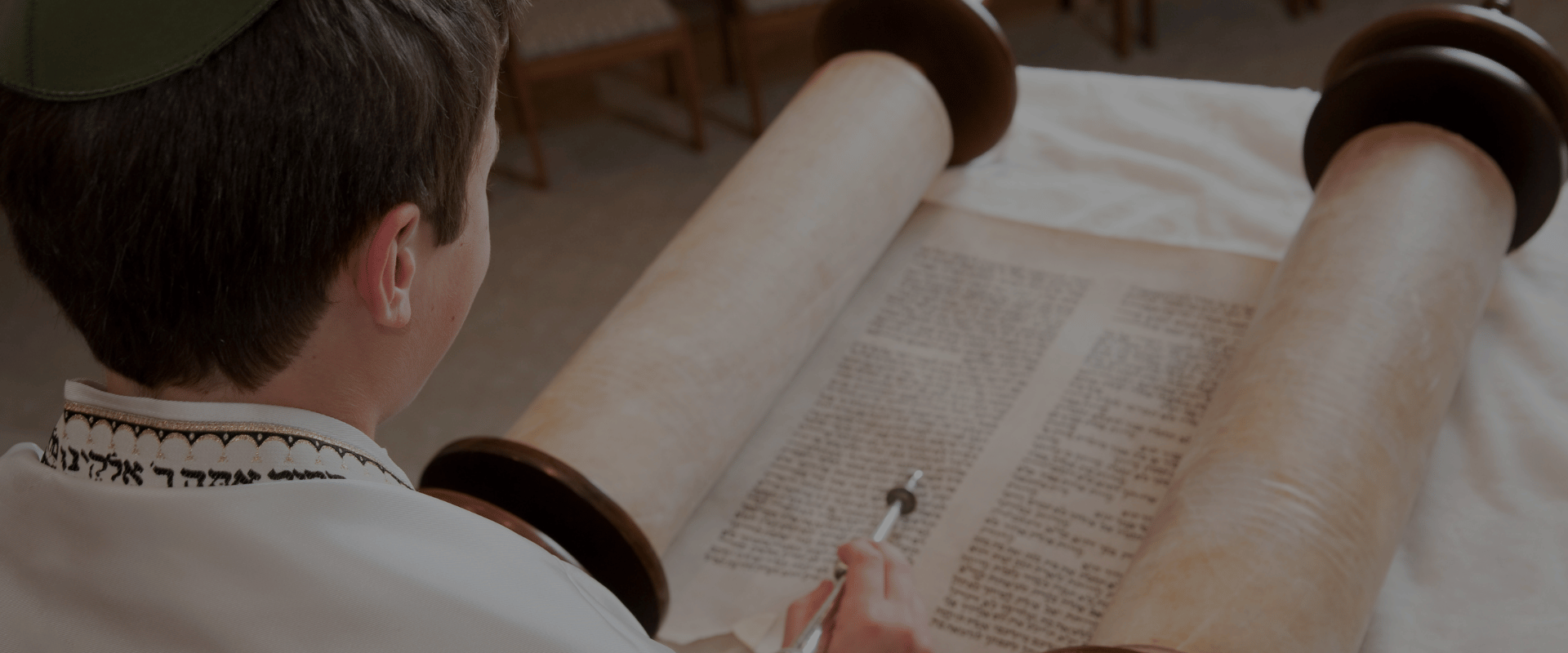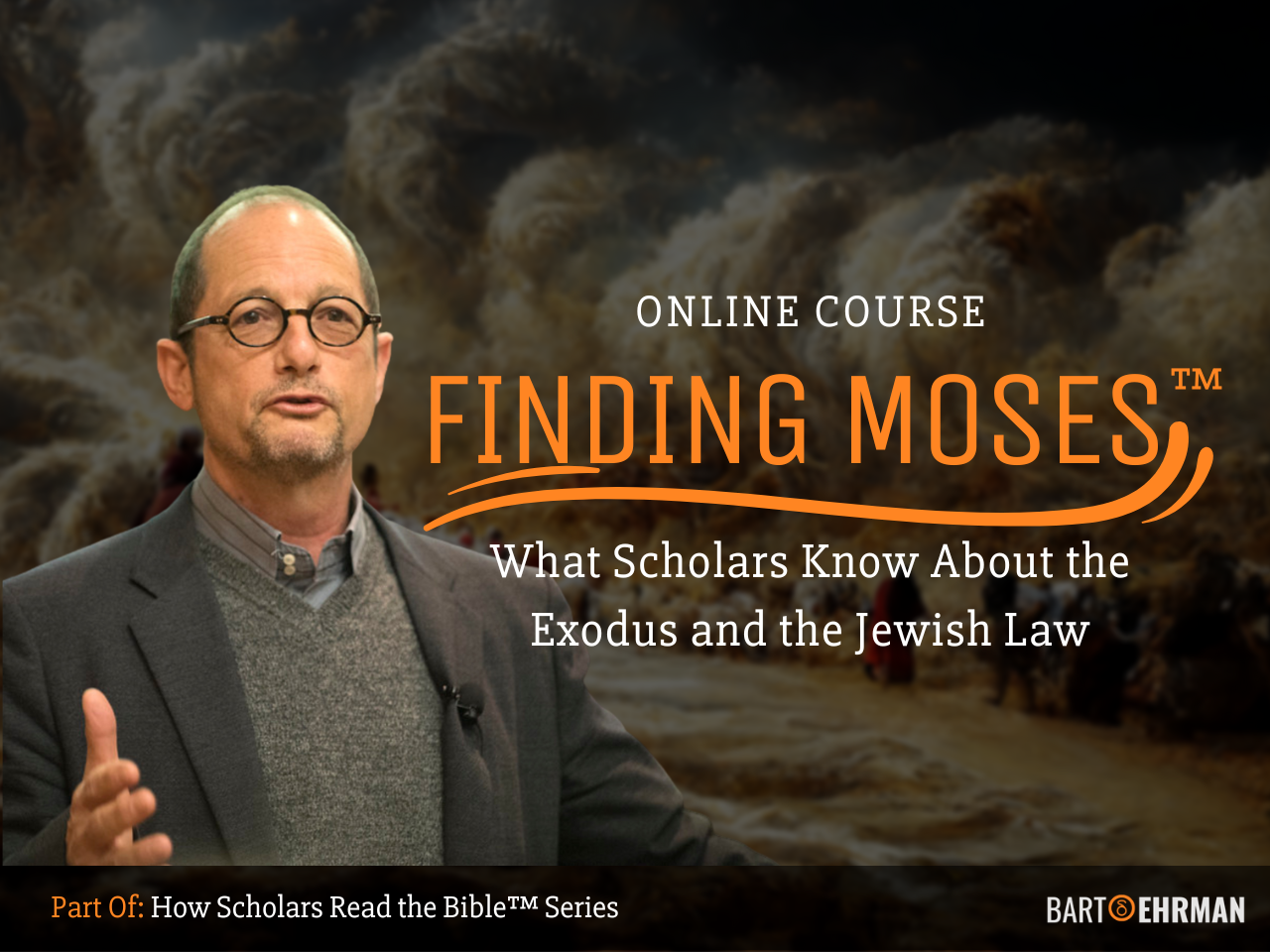Judaism Beliefs About God, Death, and the Afterlife

Written by Joshua Schachterle, Ph.D
Author | Professor | Scholar
Author | Professor | BE Contributor
Verified! See our editorial guidelines
Verified! See our guidelines
Edited by Laura Robinson, Ph.D.
Date written: December 19th, 2024
Disclaimer: The views and opinions expressed in this article belong to the author and do not necessarily match my own. - Dr. Bart D. Ehrman
Judaism is a religion deeply rooted in right practices, making it somewhat difficult to distill its essential beliefs. This focus on righteous living has shaped Jewish views on God, death, and the afterlife in unique ways.
In this article, I explore fundamental Judaism beliefs, tracing their development from ancient times through the Middle Ages and into the modern era. I also examine the diversity of Jewish thought, recognizing that there is no single, unified perspective within Jews’ religious tradition.

Judaism Practices vs. Beliefs
Before we talk about Judaism’s beliefs, we have to talk about the main emphasis in Judaism. As Rabbi Baruch HaLevi provocatively writes, “Judaism doesn’t care what you believe, but rather what you do.” In other words, while Judaism certainly has a variety of beliefs, as do all ancient religious traditions, actions are valued more. This is clear in an oft-quoted Hebrew Bible statement from Micah 6:8:
What does the Lord require of you
but to do justice and to love kindness
and to walk humbly with your God?
Christianity, on the other hand, while it certainly wants its adherents to follow the injunctions in Micah, also requires certain beliefs from its followers to an extent that is foreign to Judaism. This was the case from Christianity’s earliest centuries, when Christians battled over correct beliefs about the Trinity, the nature of Christ’s sacrifice, and many other topics. Evidence of these debates can still be found in many Christian churches where the Nicene Creed, a statement of defining beliefs formulated at the Council of Nicaea in 325 CE, is often recited.
In fact, the term “heretic,” originally derived from the Greek word hairesis meaning “to choose,” came to mean someone who believed the wrong things in the context of early Christianity.
Having established that Judaism is, above all, a religion of right practice, let’s look at some of its basic beliefs. For an excellent comparison of Judaism and Christianity, see this article by Marko Marina.
Statements of Belief in Judaism
One of the earliest statements of Jewish belief can be found in a prayer called the Shema from Deuteronomy 6:4: “Hear, O Israel: The Lord is our God, the Lord alone.” This, by the way, is the translation from the NRSV updated version. The Hebrew word translated as “the Lord alone” can also be translated as “the Lord is one,”which has long been the most common English translation. However, there are reasons for thinking that “the Lord alone” is a better translation.
Primarily, we see multiple examples in the Hebrew Bible, proving that many of the authors were not actually monotheists. That is, they fully believed in the existence of other gods but thought their God was the greatest. This is called henotheism and seems to be a more accurate reading of early Jewish beliefs about God. For more on this topic, see The Early History of God: Yahweh and the Other Deities in Ancient Israel by Mark Smith.
(Affiliate Disclaimer: We may earn commissions on products you purchase through this page at no additional cost to you. Thank you for supporting our site!)
For example, in Psalms 82:1, it says “God has taken his place in the divine council; in the midst of the gods he holds judgment.” Clearly, the author of this psalm believed there were many gods, although Yahweh was the head of the council. In Judges 11:24, Jephthah, an Israelite warrior, says this to the king of the Ammonites:
Should you not possess what your god Chemosh gives you to possess? And should we not be the ones to possess everything that the Lord our God has conquered for our benefit?
Jephthah believes that Chemosh is a real, existing god. So one of the earliest statements of Jewish belief, the Shema, which devout Jews still pray daily, merely says that Jews are only to worship Yahweh rather than the gods of other peoples.
Most of the rest of the Hebrew Bible contains injunctions for how the Jews should worship and treat each other — that is, practices required by God. When Moses receives the Torah or Law from God on Mount Sinai, it is viewed as a gift from God in that it tells them how to live. As early Judaism developed into rabbinic Judaism by the end of the 1st century CE, interpreting and following the Torah’s commandments became its defining principle and remains so to this day.
If we skip many centuries ahead, however, we do get a statement of Judaism beliefs about God and associated subjects by one of the most influential Jewish philosophers in history. The Spanish rabbi Moses ben Maimon, also known as Maimonides (1135-1204 CE) wrote a statement of 13 essential Jewish beliefs, likely in response to the developing theologies of Christianity and Islam. They are as follows (translation from Jews, Church & Civilization by David Birnbaum):
1. I believe with perfect faith that the Creator, Blessed be His Name, is the Creator and Guide of everything that has been created; He alone has made, does make, and will make all things.
2. I believe with perfect faith that the Creator, Blessed be His Name, is One, and that there is no unity in any manner like His, and that He alone is our God, who was, and is, and will be.
3. I believe with perfect faith that the Creator, Blessed be His Name, has no body, and that He is free from all the properties of matter, and that there can be no (physical) comparison to Him whatsoever.
4. I believe with perfect faith that the Creator, Blessed be His Name, is the first and the last.
5. I believe with perfect faith that to the Creator, Blessed be His Name, and to Him alone, it is right to pray, and that it is not right to pray to any being besides Him.
6. I believe with perfect faith that all the words of the prophets are true.
7. I believe with perfect faith that the prophecy of Moses our teacher, peace be upon him, was true, and that he was the chief of the prophets, both those who preceded him and those who followed him.
8. I believe with perfect faith that the entire Torah that is now in our possession is the same that was given to Moses our teacher, peace be upon him.
9. I believe with perfect faith that this Torah will not be exchanged, and that there will never be any other Torah from the Creator, Blessed be His Name.
10. I believe with perfect faith that the Creator, Blessed be His Name, knows all the deeds of human beings and all their thoughts, as it is written, "Who fashioned the hearts of them all, Who comprehends all their actions" (Psalm 33:15).
11. I believe with perfect faith that the Creator, Blessed be His Name, rewards those who keep His commandments and punishes those that transgress them.
12. I believe with perfect faith in the coming of the Messiah; and even though he may tarry, nonetheless, I wait every day for his coming.
13. I believe with perfect faith that there will be a revival of the dead at the time when it shall please the Creator, Blessed be His name, and His mention shall be exalted for ever and ever.
Notice that many of these beliefs center around monotheism, which had become central to Judaism long before Maimonides. Others focus on the validity of Torah and the necessity of following its commandments, the notion that the Messiah was still coming — since most Jews did not (and do not) believe that Jesus was the Messiah — and the coming resurrection (more on that later).
These statements of belief were certainly influential in Judaism, but were not universally accepted. This brings us to more specific Jewish beliefs and the fact that there is not one central Judaism but many Judaisms (just as there are many Christianities and many Islams). Let’s look at some examples of the varieties of Jewish beliefs.
Judaism Beliefs About God
As I said above, the earliest Jews believed that while many gods existed, their God, Yahweh, was the most important and powerful. This developed eventually into strict monotheism, the notion that Yahweh is the only God that exists, a belief that most Jews continue to hold. It’s important to note, by the way, that God’s name in Judaism — four consonants, YHWH, known as the tetragrammaton — is considered so holy that it should never be uttered. Instead, when Jews encounter the name in a reading, they say “Adonai,” the Hebrew word for Lord.
In a very general sense, several qualities are ascribed to God across the varieties of Judaism. First, God is the Creator, having created everything that exists. Second, God is omniscient, or all-seeing. There have been numerous debates for centuries, by the way, about whether this means that God has perfect foreknowledge of all human actions.
Third, God is omnipotent or all-powerful, although some modern Jewish theologians, such as Geoffrey Claussen, have argued against this notion. Those who believe in God’s omnipotence, however, also believe God has the ability and the inclination to intervene in the world. Fourth, God is incorporeal or bodiless and, despite the Hebrew Bible’s characterization of God as male, is not gendered. In The Aryeh Kaplan Reader, Rabbi Arya Kaplan writes that "the fact that we always refer to God as ‘He’ is also not meant to imply that the concept of sex or gender applies to God."
Fifth, God is unimaginable. In other words, God is so different from anything in normal human experience, that people cannot even conceive of him. It is for this reason that Judaism is aniconic, meaning it forbids depictions of God. To depict God would be to ignore his total otherness and even to limit him.
There is much more that can be said about God in Judaism, but these characteristics are generally upheld by most Jewish sects.
Judaism Beliefs About Death
In distinguishing between beliefs about death in Judaism and Christianity, the first thing to note is that Jews view death as a natural part of life. Christians, on the other hand, often interpret the story of Adam and Eve in Genesis as the beginning of death for human beings, which is seen as a tragedy. In other words, humans were not meant to die before the sin of Adam and Eve ushered in that inevitability.
In his book The Jewish Book of Why, Rabbi Alfred Kolatch writes that Judaism values life above all else. In fact, the Talmud, a compilation of authoritative Jewish teachings, says that, since all people are descended from one person, taking a human life is akin to destroying an entire world, while saving a life is like saving an entire world.
Because of this value for life, there are a lot of Jewish practices around mourning. Rabbi Kolatch writes that their purpose is twofold: First, to show deep respect for the dead and second, to comfort the living. The first set of practices involves caring for the body of the deceased.
After a person dies, their body is not to be left alone until the burial. Those who sit with the body are called shomerim meaning “watchers” or “guards.” These people cannot eat or drink in the presence of the dead body because to do so would be considered mocking the dead who can no longer do these things. This implies that in some sense, the person is still present.
Being in the presence of a corpse is a cause of ritual impurity for Jews, so those who have been in the body’s presence after death must ritually wash their hands before entering a home to avoid passing the impurity to others.
The deceased body is washed and wrapped in a plain shroud so that there is no distinction in death between rich and poor. The same goes for the coffin which must be equally plain. The body cannot be embalmed and no organs may be removed. It must then be buried, never cremated.
This meticulous care for the corpse is in sharp contrast to most Christian burial practices, which conform more to modern standards of burial regardless of religion.
Next, there are seven days of mourning called “sitting shiva” (shiva is Hebrew for seven). The mourning practices are extensive, which also contrasts with the informal mourning of most Christian burials.
All of this shows that since life is so important, the end of it must be marked properly to grant the deepest respect to the dead and to console those who remain behind. But what does Judaism say about the afterlife?

Judaism Beliefs About the Afterlife
Our earliest evidence for Judaism beliefs about afterlife specifics comes from the Hebrew Bible, although they are quite vague. The Torah, the first five books of the Hebrew Bible, mentions a destination of the dead called Sheol, a shadowy place, not unlike the Greek Hades, where all people go after death (see Num. 16:33, Ps. 6:6, Isa. 38:18). Genesis 5:24, on the other hand, speaking about Noah’s great-grandfather Enoch, says “Enoch walked with God; then he was no more, because God took him.” We aren’t told where God took him, but it’s clear that he didn’t just die. Similarly, in 2 Kings 2:11, we are told that the prophet Elijah was taken into the sky in a chariot of fire.
All these references make clear that there was belief in some sort of afterlife, but it is never fully explained or described. However, in his book Jewish Literacy: The Most Important Things to Know About the Jewish Religion, Its People and Its History, Rabbi Joseph Telushkin notes that in the later Second Temple period (539 BCE- 136 CE), there were two competing Jewish notions of the afterlife. One was a heavenly reward, either for all of Israel or for the righteous only, and the other was a general resurrection of the dead.
For example, the book of 4 Maccabees promises that the souls of Jewish martyrs will have everlasting life. 2 Maccabees, on the other hand, looks forward to the resurrection of these martyrs instead.
Finally, with the development of rabbinic Judaism, some rabbis said that when a person died, the soul left the body but maintained a temporary relationship to it for the first year, coming and going until the body had disintegrated. This might suggest one reason for having such care and respect for the corpse in modern Jewish practice.
However, in the Talmud, one passage says that this first year after death is also a kind of purgatory for the soul. After this first year, the souls of the righteous go to paradise, called Gan Eden, and the wicked to hell, called Geihinnom. One passage in the Talmud says that condemnation in the afterlife is eternal, while another says “There will be no Gehinnom in future times,” leaving the possibility that divine punishment is merely temporary.
Modern Jewish views of the afterlife vary widely. As professor Amy-Jill Levine writes, “Jewish beliefs in the afterlife are as diverse as Judaism itself, from the traditional view expecting the unity of flesh and spirit in a resurrected body, to the idea that we live on in our children and grandchildren, to a sense of heaven.” In other words, just as there is no one Judaism for all Jews, there is no single doctrine of the afterlife in which all Jews believe.
The only point on which the majority of Jews agree, however, is that any afterlife reward is due to right actions rather than right beliefs.
Conclusion
In Judaism, practices and actions are far more important than beliefs. Jews are required to follow the commandments in the Torah to the best of their ability and follow the injunctions from the Hebrew Bible — do justice, love kindness, and walk humbly with God.
Since this is the case, nailing down Judaism beliefs before the Middle Ages is difficult. Many would say that the foundational one was monotheism, but the Hebrew Bible makes clear that early Jews believed their God was simply the most powerful among many gods, a belief known as henotheism.
In the Middle Ages, Jewish philosopher Maimonides outlined 13 Jewish beliefs in response to similar lists by Christians and Muslims. However, this did not result in a widespread consensus, and future Jewish thinkers continued to debate about what would constitute essential Jewish beliefs.
Nevertheless, we can generally say that most forms of Judaism view God as all-seeing and all-powerful and view death as extremely significant because of the great value of life. When it comes to the afterlife, however, there are diverse opinions, ranging from heavenly rewards and eternal damnation to purgatorial periods and the resurrection of bodies which reunite with souls.

